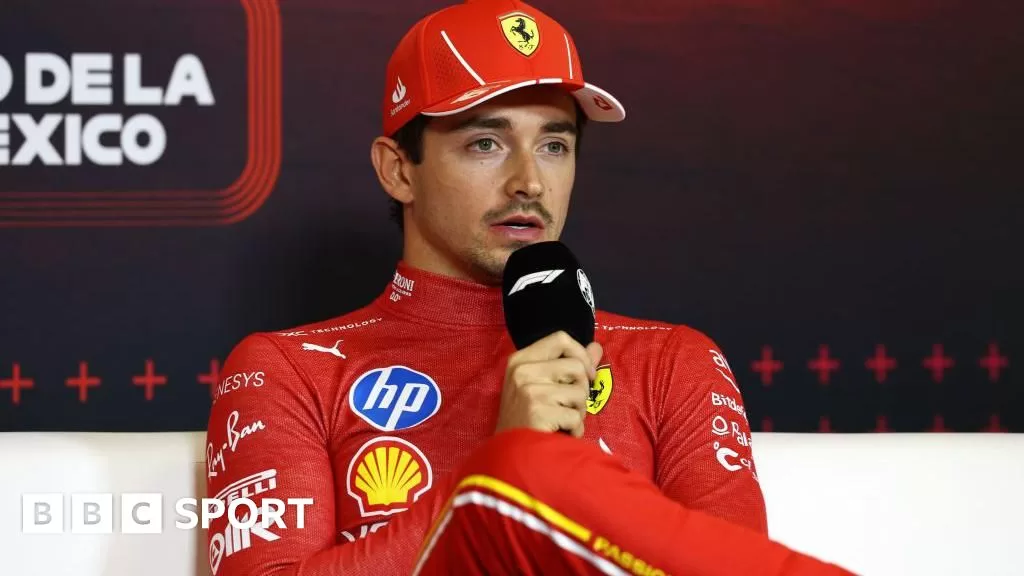The incident, in which Leclerc ran off track and narrowly avoided the barriers while fighting to control his car, cost him second place in the race to the Briton.
The judgement said Leclerc had “used language in response to a somewhat leading question asking him, ‘what did you say to yourself’, in relation to the significant moment towards the end of the race when Leclerc was fighting to control the car at the exit of the last corner.
“In response, Leclerc used coarse language being the accurate recollection of what he thought to himself at the time. Leclerc immediately realised his error and apologised.”
The stewards’ decision to summon Leclerc for the offence came after Verstappen had pointed out the apparent contradiction between him being punished in Singapore and Leclerc not being called to account in Mexico.
In Singapore, Verstappen staged two protests at official news conferences following his punishment, deliberately restricting his answers as much as possible, only to then speak to journalists more extensively outside the FIA press conference room.
The action in Singapore came after FIA president Mohammed Ben Sulayem said in an interview with Autosport that he wanted swearing not to be broadcast on television.
The drivers responded angrily to Ben Sulayem’s intervention, feeling it was misguided, because the radio messages broadcast on television show them being their authentic selves, and any swear words are bleeped out.
Commercial rights holder F1, which is responsible for the TV broadcasts, has no plans to change its approach.
Mercedes driver George Russell, a director of the Grand Prix Drivers’ Association, said two weeks ago that the drivers planned to publish an open letter over the controversy.
This letter, which is expected to reflect the views the drivers have already made clear in public but may make further interventions that have not yet been made public, has so far not been released.
